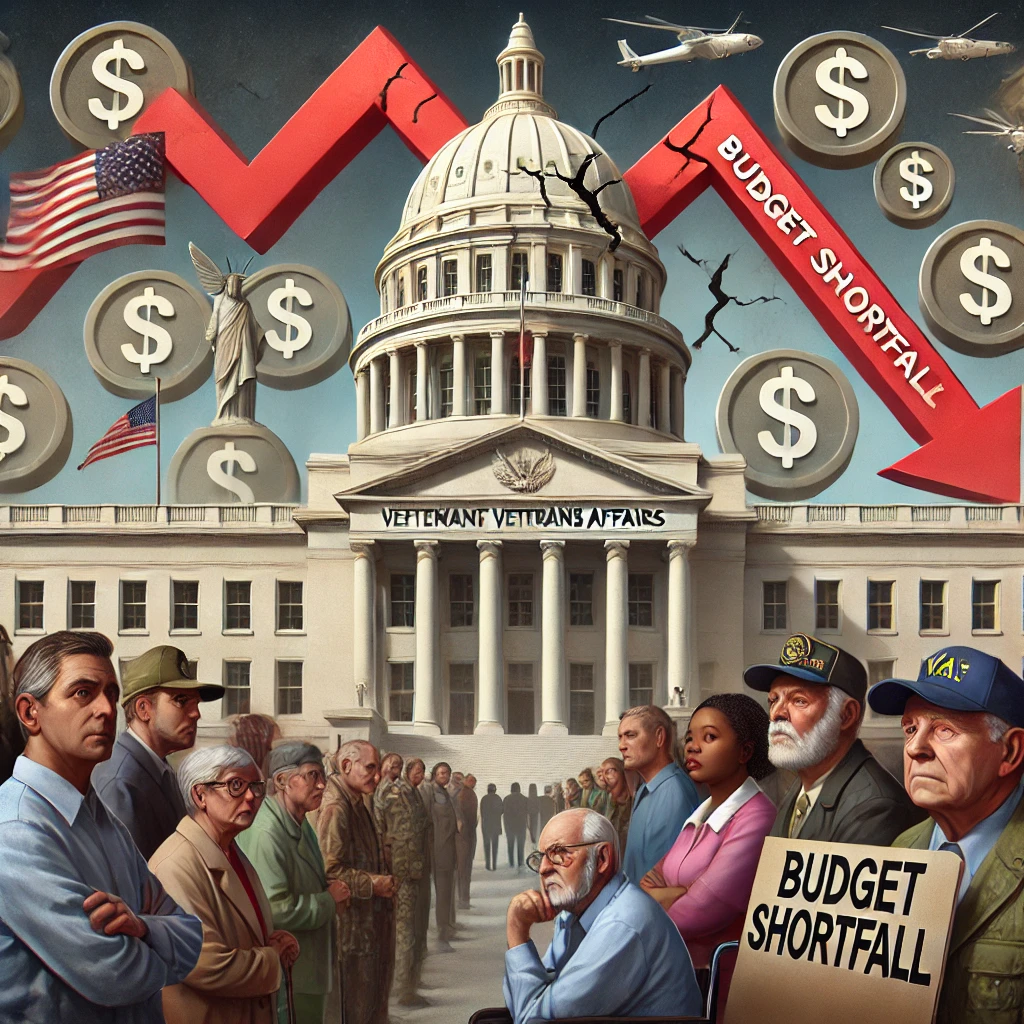VA Warns Congress of Potential Benefits Payment Disruptions Due to $15 Billion Budget Shortfall

VA Warns Congress of Potential Benefits Payment Disruptions Due to $15 Billion Budget Shortfall
The Department of Veterans Affairs (VA) has informed Congress that it may face a nearly $15 billion budget shortfall this year and next, largely due to a higher-than-expected number of veterans utilizing VA services. This shortfall could affect both benefits and health care programs.
A significant portion of the deficit is attributed to the PACT Act, which has led to an increase in benefits claims, potentially leaving the VA $2.9 billion short in its benefits accounts this year. Additionally, health care accounts could fall short by nearly $12 billion next year, driven by unexpected costs related to staffing and prescription drugs.
In response to these concerns, the VA stated that it is collaborating with the White House and Congress to address the budgetary challenges in a manner that protects veterans’ interests.
“Currently, due in large part to the historic PACT Act, the VA is delivering more care and benefits to more veterans than ever before,” said VA Press Secretary Terrence Hayes. “These efforts are life-changing for veterans, their families, caregivers, and survivors, and the VA remains committed to ensuring they receive the care and benefits they deserve.”
However, there are warnings that if funding is not secured by the end of the fiscal year, benefits payments could be disrupted. Chairman of the House Veterans Affairs Committee, Mike Bost (R-Ill.), criticized the VA for what he described as fiscal mismanagement, noting that this is the largest budget shortfall the department has experienced under any administration.
Bost has demanded that VA Secretary Denis McDonough provide answers regarding the shortfall, raising the possibility of a subpoena if the VA does not comply by July 26.
For this fiscal year, the VA anticipated spending around $193 billion on benefits payments. While disability benefits payments have been slightly lower than projected so far, an increase is expected by year-end, particularly due to the PACT Act. There is also an anticipated rise in GI Bill payments following a Supreme Court ruling that expanded education benefits for veterans.
“If the Veterans Benefits Administration lacks sufficient funding, compensation and pension payments to over 7 million veterans and survivors, along with readjustment benefit payments to over 500,000 individuals, scheduled for October 1, 2024, are at risk,” officials warned.
In March, the VA requested nearly $370 billion for fiscal 2025, including $134 billion in discretionary spending primarily for medical care. While this represents a 13% increase from the previous year, discretionary funding is slightly reduced due to budget caps imposed by Congress.
The VA’s budget request anticipated a reduction of about 10,000 employees in the Veterans Health Administration, but the agency now expects to have about 20,000 more employees than initially projected. Additionally, pharmacy and prosthetic costs for next year could exceed expectations by $4 billion if current pricing trends continue.
The VA also noted that increased use of community care services, where veterans receive care from non-VA providers, is contributing to the budget shortfall. The program’s costs are now projected to increase by 16.5% next year, up from the originally forecasted 12%.
Despite these challenges, the VA views the higher-than-expected costs as a positive indicator of the success of the PACT Act, which expanded care and benefits for veterans exposed to toxins during their service.
“Significant growth in care has resulted from new benefits and enrollment opportunities under the PACT Act, alongside unprecedented outreach efforts to inform veterans about these opportunities,” Hayes added.
Chairman Bost, however, criticized the VA for not adequately planning for the PACT Act’s impact and for using budgetary tactics he described as “gimmicks.” He also questioned the VA’s drastic change in staffing projections, noting the difficulties in hiring quality healthcare workers amid shifting targets.
Source:
https://www.veterans.senate.gov/2024/7/sen-moran-statement-on-va-budget-shortfall